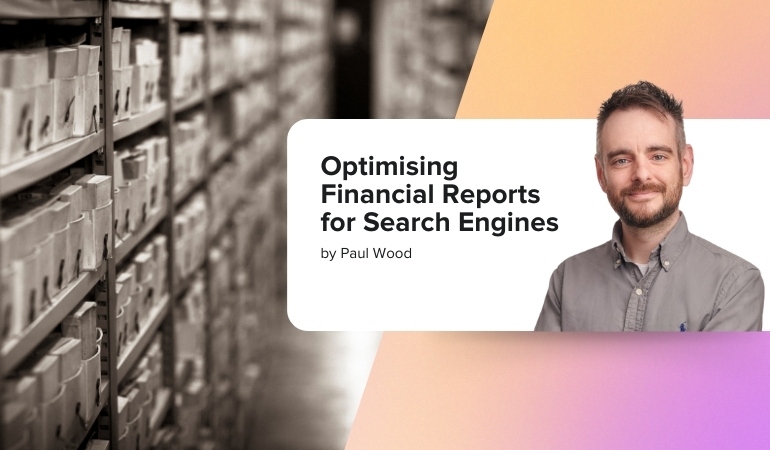It’s pretty common for financial services firms to have to publish monthly, quarterly, or annual documents.
Fund performance reports, financial summaries, and updates to policy documents. Each of these results in new digital content.
I’ve seen countless times these have caused search engines to mix up versions of the same content and send users to the incorrect destination.
So, it’s with interest that I read that Google Senior Search Analyst John Mueller recently addressed the topic in a post on LinkedIn.
He recommends this; “Use a stable URL for the current version.”
An example of a stable URL
So what does Mueller mean by a stable URL?
If you publish a quarterly report, the URL for the page on which it lives should be domain.com/quarterly-report.
When the time comes to replace Q1’s report with Q2’s, you create a new page. The new page, however, should be for last quarter’s version.
So you will end up with:
- domain.com/quarterly-report-q1-2024
- domain.com/quarterly-report
Then when Q3 rolls around, you’ll go with:
- domain.com/quarterly-report-q2-2024
- domain.com/quarterly-report-q1-2024
- domain.com/quarterly-report
This approach has a distinct advantage; your current quarterly report is always available on the original, ‘evergreen’ URL. As soon as the current report is uploaded, it’s indexed in search and most likely to be returned when a user searches for ‘company XYZ quarterly report’.
Secondly, this approach appropriately handles archive reports. If a user seeks a report from the past, they are more likely to specify exactly which report they are looking for, making it easy for a search engine to match the request with a page.
PDF or not?
Somewhat related to this topic is whether to publish reports in PDF format or as web pages.
It’s common for reports to be produced and distributed throughout an organisation in PDF form, however, I’m unconvinced this is best for the web.
Take this example: if I search Google for “Now Pensions fund fact sheet Q2 2024”, Google returns the correct result.
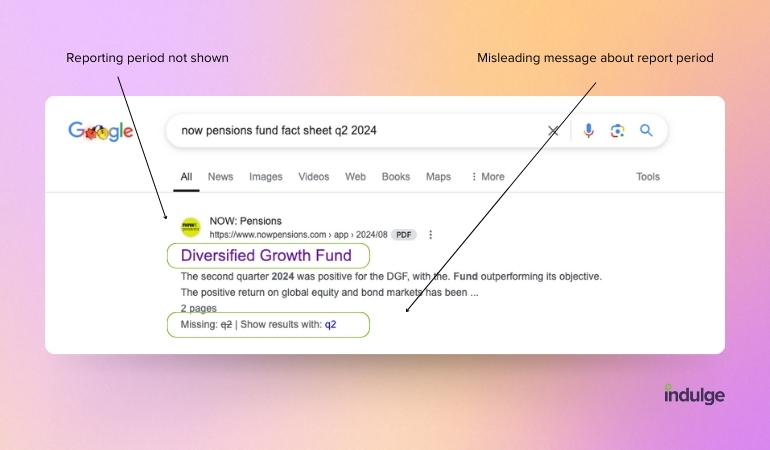
For the user, however, the result isn’t perfect.
For instance:
- The title (Diversified Growth Fund) doesn’t clarify it’s a report for Q2 2024
- “The second quarter 2024” in the description clarifies the reporting period but is perhaps a clunky description
- Google highlights that this result is “Missing: q2”
It’s not impossible to make PDF results play ball and provide a better experience when returned in search, however, I feel a full-fledged web page with a link to download the PDF version offers far more flexibility in perfecting the user journey from search.
By the way, I’m not picking on Now Pensions here. Google makes a fudge of this for other brands.
Direct Line’s trading update throughout 2024 is a mess on Google:
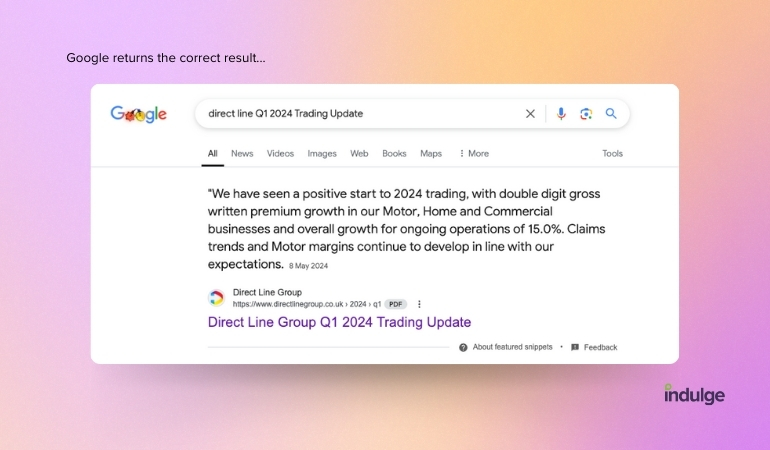
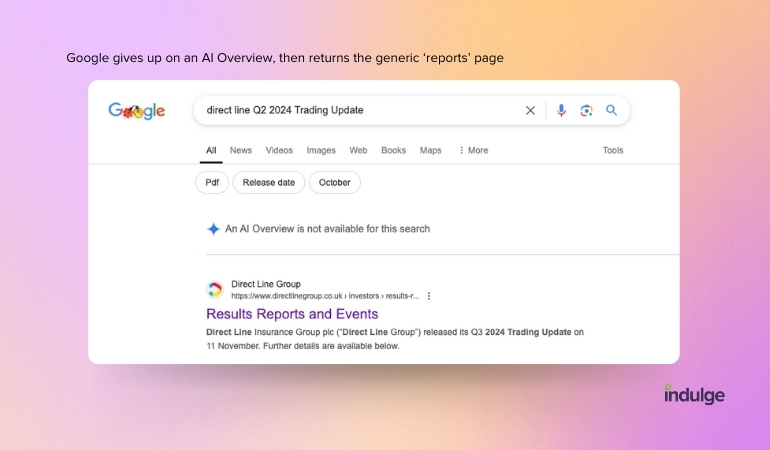
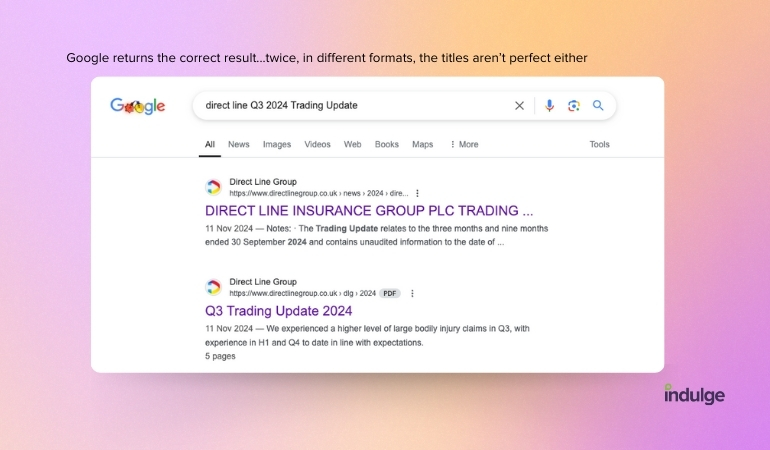
Meanwhile, AON’s earnings release searches lead to a mix of results, none of which truly serve the audience well:
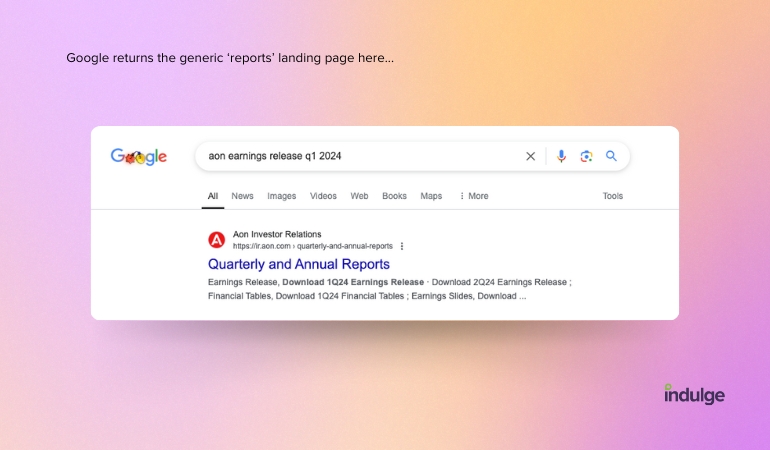
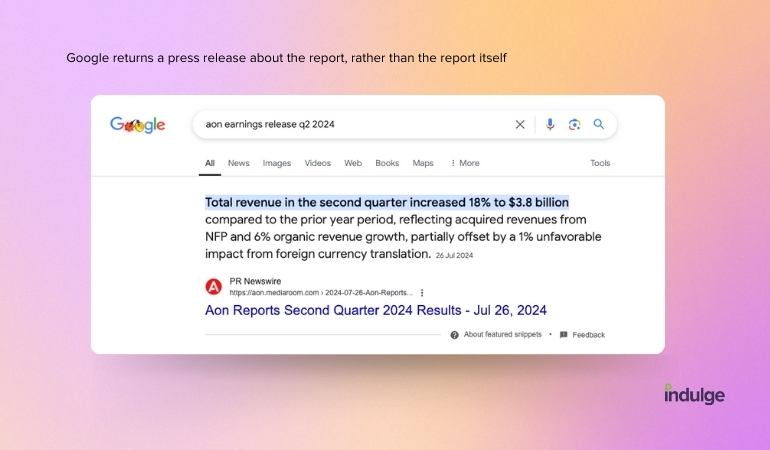
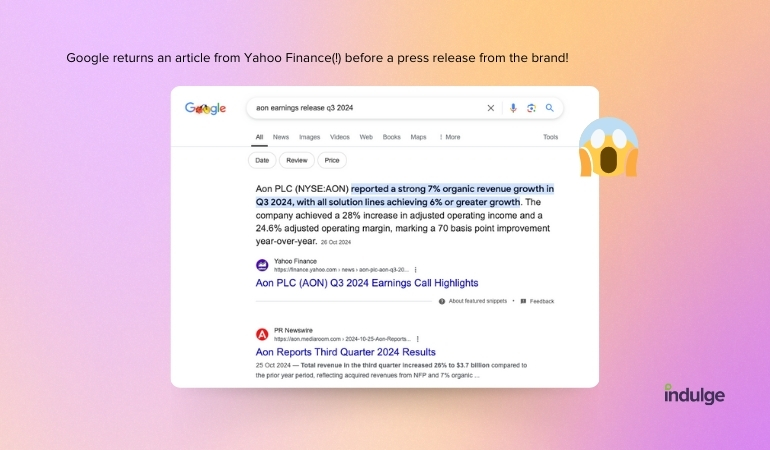
It’s a sticky subject for firms producing reports at scale, but the advice from Google is that by applying a bit of logic when planning your information architecture, users should be able to reach the correct information quickly.


